1. Naman Ahuja
(Jawaharlal Nehru U)
 |
Naman P. Ahuja is Professor of art history at Jawaharlal Nehru University, New Delhi. He has curated a number of exhibitions on classical and contemporary art; most notably – The Body in Indian Art and Thought (2013: Brussels and Delhi). In collaboration with the British Museum, he co-curated India and the World: A History in Nine Stories (Penguin, 2017) at the National Museum, Delhi and CSMVS Mumbai. His writings have been translated into various languages, and have drawn attention to the foundations of Indian iconography and transcultural exchanges at an everyday, quotidian level. His latest books are The Art and Archaeology of Ancient India, Earliest times to the sixth century (Ashmolean Museum, Oxford 2018) and Phanigiri: Interpreting an Ancient Buddhist Site in Telangana (Marg Publications, 2021). |
2. Susan Andrews
(Mount Allison U)
 |
Susan Andrews is Associate Professor of East Asian religions at Mount Allison University. Her research explores sacred place and pilgrimage, Buddhism’s interactions with autochthonous forms of practice, and the economics of religious life. Her teaching prioritizes hands-on learning and she is interested in better understanding the possibilities that embodied pedagogies hold for undergraduate students of religious studies. |
3. James Benn
(McMaster)
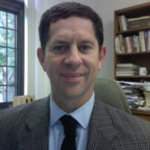 |
James Benn is a Professor in the Department of Religious Studies. His field of research is religion in medieval China (roughly fourth to tenth century, CE). To date he has concentrated on three major areas of interest: bodily practice in Chinese Religions; the creation and transmission of new religious practices and doctrines; and the religious dimensions of commodity culture. In particular, he has focused on self-immolation, Chinese Buddhist apocrypha, and the history of tea. He works with primary sources written in literary Chinese and my research engages with that of scholars who publish in English and French as well as in modern Chinese and Japanese. Although his work is grounded in traditional Sinology—a discipline based on knowledge of the literature, history, and culture of pre-modern China—his publications are also aimed towards scholars of Religious Studies. |
4. Pia Brancaccio
(Drexel)
 |
Pia Brancaccio is Professor of Art History at Drexel University in Philadelphia, USA. She completed her Ph.D. in South Asian Art and Archaeology at the Universita’ degli Studi di Napoli l’Orientale in Italy, and is a longtime collaborator of the Italian Archaeological Mission in Pakistan. Her research focuses on early Buddhist art in South Asia, with a special focus on the ancient regions of Gandhara and the Western Deccan. Her publications include the volumes The Buddhist Caves at Aurangabad: Transformations in Art and Religion (Brill Publishers, 2010); Living Rock: Buddhist, Hindu and Jain Cave Temples in Western Deccan (Marg, 2013), and Gandharan Buddhism: Archaeology, Art and Text co-edited with Kurt Behrendt (UBC Press, 2006), in addition to numerous articles in festschriften, conference proceedings and academic journals (Ars Orientalis, Archives of Asian Art, East and West, South Asian Studies, Hualin International Journal of Buddhist Studies). |
5. Robert Brown
(UCLA)
 |
Robert L. Brown is Research Professor of Indian and Southeast Asian Art at ULCA and Curator Emeritus of South and Southeast Asian Art at LACMA. He received his PhD from UCLA. He studies broadly the art, cultures, and religions of South and Southeast Asia, in particular comparing them and tracing their relationships. Among his recent publications are Carrying Buddhism: The Role of Metal Icons in the Spread and Development of Buddhism. Amsterdam, J Gonda Fund Foundation of the KNAW, 2014; an On-line Scholarly Catalog: Catalog of the Southeast Asian Collection at LACMA, launched November 2013. (seasian.catalog.lacma.org); and “Gupta Art as Classical: A Possible Paradigm for Indian Art History,” in Indology’s Pulse: Arts in Context. Delhi, Aryan Books, 2020. |
6. Jinhua Chen 陳金華
(UBC)
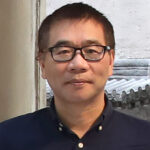 |
A member of the Royal Society of Canada, Jinhua CHEN is Professor of East Asian religious history at the University of British Columbia, where he also served as the Canada Research Chair in East Asian Buddhism (2001-2011). He has published on East Asian state-church relationships, monastic (hagio/)biographical literature, Buddhist sacred sites, relic veneration, Buddhism and technological innovation in medieval China, and Buddhist translations. |
7. Ming Chen 陳明
(PekingU)
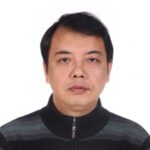 |
CHEN Ming is currently a Professor and Head of the Department of South Asian Studies at Peking University. Since he was awarded a doctoral degree by Peking University in 1999, with a dissertation on Indian Medical Science, he has focused on the history of cultural communication between China and Central & South Asia in the Medieval Period, mainly but not exclusively in terms of medicine. His academic interests have also been extended to a study on Buddhist literature in Sanskrit-Chinese, and the influence of ancient South Asian literature on China. He has published six books all in Chinese as follows:
(1) On the Sanskrit Medical Book Siddhasāra (2002, 2014);
(2) Medical Manuscripts Discovered in Dunhuang and Western Regions: Foreign Medicine in Medieval China (2005);
(3) A Study on Sanskrit Medical Text of Jīvaka-pustaka from Dunhuang (2005);
(4) Foreign Medicine and Culture in Medieval China / (2013);
(5) Texts and Languages: A Comparative Study on Some Manuscripts Unearthed from the Silk Road and Early Chinese Buddhist Canon/ (2013);
(6) Indian Buddhist Mythology: Its Writing and Transmission (2016).
Now he is also interested in comparative study of Buddhist literature and vocabulary in Sanskrit and Chinese, and the transmission of tales and related images in pre-modern Eurasia. He has two funded projects: A collection of illustrated texts of ancient Eastern literature and related studies, and Studies on exchanges of culture and literature between China and South Asia in pre-modern period.
|
8. Gérard Colas
(CNRS)
 |
Gérard Colas obtained a Ph.D. at Sorbonne-Nouvelle (Paris) for a thesis devoted to the techniques of architecture in selected Sanskrit texts. He then obtained a D. Litt. for a thesis on the Sanskrit Vaikhānasa corpus (ca 10th century). Initially a specialist for Indian manuscripts at the Bibliothèque nationale de France, he was then hired at the Centre national de la Recherche Scientifique, where he is now Emeritus Directeur de Recherche. In addition to Vaiṣṇavism and architecture, his publications concern Hindu philosophies, manuscriptology, and 18th-century Christian works in Sanskrit and Telugu. |
9. Max Deeg
(Cardiff)
 |
Max Deeg is Professor in Buddhist Studies at Cardiff University. He received his Ph.D. in Classical Indology and his professorial degree (Habilitation) in Religious Studies at Würzburg University, Germany. His main research interest is in the history of Buddhism and its spread; he has researched and published extensively on Chinese Buddhist travelogues. His most recent publications are: Miscellanae Nepalicae: Early Chinese Reports on Nepal—The Foundation Legend of Nepal in its Trans-Himalayan Context (2016), and Die Strahlende Lehre—Die Stele von Xi’an (2018). |
10. Margarita Delgado Creamer
(Pittsburgh)
 |
Margarita Delgado Creamer, PhD, currently teaches at the University of Pittsburgh. Her experience studying and teaching in England, Peru, the United States, China and the Philippines has led her to develop a penchant for understanding cultural interaction in its diverse expressions. With an academic background in Eastern and Western philosophy, she later on specialized on Asian religions with a focus on early Chinese Buddhism and its interaction with Daoism. Her latest research focuses on the relationship of spirituality, ethics and health in Buddhism, and the transmission of Buddhism to Latin-America. |
11. Peter Flügel
(SOAS)
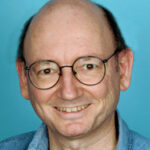 |
Peter Flügel, Dr Phil Johannes Gutenberg-Universität Mainz, is Founding Chair of the Centre of Jaina Studies, and Professor of the Study of Religions and Philosophies at the Department of History, Religions and Philosophies in the School of Oriental and African Studies, University of London. He has published extensively on the history, anthropology and sociology of contemporary Jain schools and sects, Jain relic stūpas, Jaina-Vaiṣṇava syncretism, and on the socio-political and legal history of the Jain tradition. He is also working on social theory, and questions of comparative philosophy, pluralism and non-violence. He convenes the Annual Jaina Studies Workshops at SOAS, is editor of the International Journal of Jain Studies, series editor of Routledge Advances in Jaina Studies, and Jaina Studies of Harrassowitz, and principal investigator of the Jaina-Prosopography project. |
12. Eli Franco
(Leipzig)
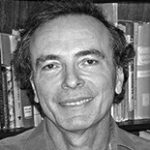 |
Eli Franco has been a professor of Indology at Leipzig University from 2004 to 2021. He is now retired and lives in Vienna. He published extensively in the field of Indian and Buddhist philosophy. |
13. Ge Zhouzi
(Shanxi Normal U 陝西師範大學)
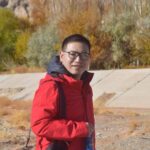 |
Ge Zhouzi, born in February 1987, received his doctoral degree from the Historical Geography Research Center at Fudan University. He is currently an associate professor in the School of History and Culture at Shaanxi Normal University. His main research interest is Chan Buddhism’s spatial extension from Five dynasties. He has severed as the Secretary-general of the Society of Tang Culture in Xi’an since December 2018; a member of the Society of Chinese Tang History since July 2018; and a member of the Society of Early and Medieval Chinese History (EMCH) since September 2015. He has published more than a dozen papers in academic journals like Social Science Front, Religious Studies, Journal of Chinese Historical Geography, and Journal of Historical Anthropology. 葛洲子,男,1987年2月生,現為陝西師範大學歷史文化學院副教授。2018年12月至今,「西安唐代文化史研究會」秘書長;2018年7月至今,「中國唐史學會」會員;2015年9月至今,「早期中國史研究」(EMCH)研究會會員。博士畢業於復旦大學歷史地理研究中心,獲中國史博士學位,主要研究方向為五代以降禪宗傳法的空間擴展。在《社會科學戰線》、《宗教學研究》、《中國歷史地理論叢》、《歷史人類學學刊》等刊物發表論文、書評十餘篇,其中核心及以上級別10篇。代表論文《道付何人:唐宋間雪峰僧團的分化與「玄沙正宗」的確立》,發表於《中國歷史地理論叢》(CSSCI)2019年第1輯,《人大復印報刊資料•宗教》2019年第3期全文轉載。 |
14. Marko Geslani
(South Carolina)
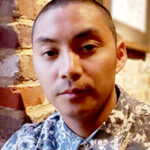 |
Marko Geslani is Associate Professor in the Department of Religious Studies at the University of South Carolina. His research considers the interface of Vedic ritual and astrology (jyotiṣa) in early medieval India. He is the author of Rites of the God-King: Śānti and Ritual Change in Early Hinduism (OUP 2018).
|
15. Ellen Gough
(Emory)
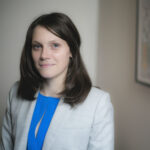 |
Ellen Gough is an assistant professor in the Religion Department at Emory University whose research focuses on Jainism. She received her PhD in Asian Religions from Yale University in 2015, and she is the author of Making a Mantra: Tantric Ritual and Renunciation on the Jain Path to Liberation (University of Chicago Presss, 2021). |
16. Lilian Handlin
(Independent)
 |
Lilian Handlin (M.A. Brown University; Ph.D. Hebrew University of Jerusalem 1977) was instructor in the Department of History and the Department of American Studies at the Hebrew University of Jerusalem, 1970 – 1977. Her interests focus on the intersection between social history and the history of ideas. She is the author and co author of six books, including George Bancroft:Intellectual as Democrat (New York, Harper and Row, 1984) and Liberty in America, 4 volumes (Harper and Row, 1986 – 1994) co-authored with her husband, Oscar Handlin. Her published articles appeared in the American Scholar, the New England Quarterly, the Massachusetts Historical Society Proceedings, Perspectives in American History, the Journal of Burma Studiesand other publications.
Handlin’s most recent publications include a book chapter, “The king and his bhagava: the meanings of Pagan’s early Theravada,” 103 – 179 in Peter Skilling et al., eds., How Theravada is Theravada?: Exploring Buddhist Identities (Chiang Mai, Thailand, Silkworm Books , 2012); an essay on the best known of the Buddha’s earlier lives in the Pali informed tradition , published under the title “A man for all seasons: three Vessantara(s) in premodern Myanmar,” which appeared in Steven Collins ed., Readings of the Vessantara Jatakas (New York, Columbia University Press, 2016); and a long examination of the meanings of hell in early Myanmar history, entitled “The uses of human malleability: images of hellish and heavenly sojourns in pre modern Myanmar,” which was published in a special issue of the journal Religions (“Seeing and Reading: Art and Literature in pre modern Indian Religions”). She is currently working on a monograph investigating early Burmese quests for and yearnings after heavenly real estate, prompted by a once popular canonical Pali text, titled Vimanavatthu (Stories of Heavenly Mansions), part of the Khuddhaka Nikaya Sutta Pitaka.. Dr. Lilian Handlin is a also member of the Harvard University CAMLab.
|
17. Jack Hawley
(Barnard, Columbia)
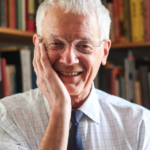 |
John Stratton Hawley—informally, Jack—is Claire Tow Professor of Religion at Barnard College, Columbia University. His most recent books on India’s bhakti traditions are A Storm of Songs: India and the Idea of the Bhakti Movement (Harvard, 2015), Sur’s Ocean (with Kenneth Bryant, Harvard, 2015), a poem-by-poem commentary called Into Sur’s Ocean (Harvard Oriental Series, 2016), and Krishna’s Playground: Vrindavan in the 21st Century (Oxford, 2020). He is the co-editor of two recent volumes bearing on bhakti: Text and Tradition in Early Modern North India (Oxford, 2018) and Bhakti and Power: Debating India’s Religion of the Heart (University of Washington and Orient BlackSwan, 2019). A Storm of Songs received the A. K. Coomaraswamy Book Prize of the Association for Asian Studies in 2017; Sur’s Ocean received the A. K. Ramanujan Book Prize for Translation of the Association for Asian Studies in 2018. Jack has received multiple awards from NEH, the Smithsonian, and the AIIS. He has been a Guggenheim Fellow and a Fulbright-Nehru Fellow, and has been elected to the American Academy of Arts and Sciences. |
18. HOU Haoran 侯浩然
(Tsing-hua)
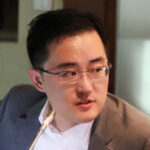 |
HOU Haoran 侯浩然 is currently a ‘Shuimu Scholar’ (水木學者) postdoctoral fellow at the School of Humanities, Tsinghua University 清華大學人文學院. His PhD is from the Institute for Indology and Central Asian Studies at Leipzig University, Germany, and his doctoral thesis entitled Play of the Great Compassionate One: Life and Works of the Fourth rGyal dbang ’Brug chen Kun mKhyen Padma dkar po(Jul. 2020, submitted at Leipzig University) was devoted to the study of the autobiography of the renowned ’Brug pa bKa’ brgyud pa hierarch Kun mkhyen Padma dkar po (1527–1592), one of the most influential figures in sixteenth century Tibet. Hou was awarded a three-year grant (Feb. 2016–Jan. 2019) from the German Research Foundation (DFG) for his doctoral research project. His academic interests focus on Tibetan hagiographical and historical writings and on the Chinese, Tibetan and Tangut Tantric texts excavated at the site of Kharakhoto. He has published several papers on Tibetan Buddhism and the Kharakhoto documents, and has co-authored a monograph, Wenben yu lishi zangchuanfojiao lishixushu de xingcheng he hanzangfoxueyanjiu de jingo 文本與歷史:藏傳佛教歷史敘事的形成和漢藏佛學研究的建構[Texts and History: The Making of Tibetan Buddhist Historical Narratives and the Construction of Sino-Tibetan Buddhist Studies] (Beijing: Zhongguo zangxue chubanshe 中國藏學出版社, Beijing daxue chubanshe 北京大學出版社, 2016) with Professor Shen Weirong 沈衛榮 of Tsinghua University. |
19. Haiyan Hu-von Hinüber
(Freiburg)
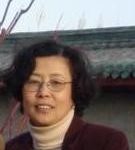 |
Dr. Haiyan HU-VON HINÜBER, Honorary Professor of Buddhist Studies at the Shandong-University and Senior Researcher of the Center of Indian Studies at the Shenzhen-University. Recently Fellow at the Max Weber Center for Advanced Cultural and Social Studies at the University Erfurt in Germany.
After having studied the historical South- and Southeast-Asian culture with a focus on the Sanskrit philology at the Peking University (1982), Hu was sent by Prof. JI Xianlin to his alma mater, the University of Göttingen where she received her doctoral degree in Indology, Tibetology und Sinology (1987). Research and teaching through the University of Freiburg, Copenhagen, and Vienna (1987-2011). 2009-2016, she was the German Director of the Confucius-Institute at the University Freiburg. The L´Institut de France and the International Research Institute for Advanced Buddhology (Soka) invited her as visiting scholar in 2010-11. Hu-von Hinüber is member of several academic associations (DMG, IASS, IABS, SEECHAC, CoJS/SOAS, CAVS, DVCS etc.). Invited by renowned universities in Europe, Asia and America, she gave more than 60 lectures on indological and Buddhist topics. Her recent publications include collected papers on Faxian, comparative studies on early Jainism and Buddhism, research works on the Pāli canon and the Tibetan lexicography, edition of ancient Sanskrit manuscripts, Buddhist and Chinese art, and the German-Chinese relationship in 20th century. |
20. Alexandra Kaloyanides
(UNC)
 |
Alexandra Kaloyanides is an assistant professor in the Department of Religious Studies at the University of North Carolina at Charlotte where her teaching focuses on Buddhism. She researches Burmese religions and American religious history. Her book, Objects of Conversion, Relics of Resistance (forthcoming from Columbia University Press), examines the religious history and material culture of the nineteenth-century American Baptist mission to Burma. Her writing has appeared in the Journal of the American Academy of Religion, Material Religions, Journal of Global Buddhism, Church History, Journal of Burma Studies, Religions, Asian Ethnology, Tricycle: The Buddhist Review, and Marginalia Review of Books. |
21. Jeffrey KOTYK
(UBC)
 |
Jeffrey Kotyk is the Sheng Yen Education Foundation Postdoctoral Fellow in Chinese Buddhism. Jeffrey received his Ph.D. from Leiden University in 2017 with a dissertation titled “Buddhist Astrology and Astral Magic in the Tang Dynasty” . Earlier he received his M.A. in Buddhist Studies from Komazawa University in Tokyo, Japan in 2011, where he studied East Asian Buddhism. He received his B.A. in East Asian Studies from the University of Alberta in 2009.
Jeffrey has published on the interaction between astronomy and Buddhism in China, such as “Iranian Elements in Late-Tang Buddhist Astrology” in Asia Major and “Yixing and Pseudo-Yixing: A Misunderstood Astronomer-Monk” in the Journal of Chinese Buddhist Studies. Recently he has researched the relationship between secular and Buddhist histories with a particular interest in evaluating the latter in light of the former. One resulting publication of this study was “Chinese State and Buddhist Historical Sources on Xuanzang: Historicity and the Daci’en si sanzang fashi zhuan” in T’oung Pao. His forthcoming monograph is titled Horoscopy and Astral Magic in Medieval China: Buddhist and Daoist Experiences of Astrology. At UBC he will be working on a project titled “State and Buddhist Accounts of South and Central Asia in Medieval China.” He is interested in comparative geography and ethnography between Buddhist and court authors in medieval China.
Jeffrey is a member of the BDK Tripitaka Translation Project. He is contributing to translations, including the Madhyāntavibhāga-bhāṣya and Abhidharmakośā-bhāṣya. He has also contributed translations connected to the FROGBEAR Project. He also translated several of the late Master Sheng Yen’s works into English for Dharma Drum Mountain. |
22. LI Wei 李巍
(HenanU)
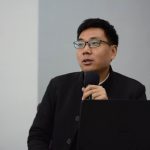 |
After securing a doctoral degree from Peking University last year (2020), Li Wei has become a lecturer at the He’nan University 河南大學. His research focuses on Buddhism’s impact on the Chinese literary traditions. He obtained his Master Degree with a thesis on the metaphors the Sanlun 三論 master Jizang 吉藏 (549-623) used in his commentaries on the Mādhyamika Śāstra, better known as Zhonglun 中論 (Treatise on the Middle Way) in the Sinitic Buddhist traditions. He is presently doing research on the Avadāna Literature in Six Dynasties, as an extension to his previous work on Buddhist literature. |
23. LI Can 李燦
(Beijing Foreign Studies U)
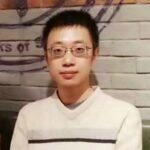 |
Li Can is a lecturer in the Asian Studies Department at the Beijing Foreign Studies University. He obtained his doctoral degree from the South Asian Studies at the Beijing University. He specialized in Sanskrit and Pali. His research focuses on the early Mahāyāna Buddhism, the history of Buddhist translation, and the literature on Buddhist rituals. 李燦,北京外國語大學亞洲學院講師。博士畢業於北京大學南亞學系梵語巴利語專業。主要研究方向:初期大乘佛教、中國佛典翻譯史、佛教儀式文獻。 |
24. LIU Cuilan 劉翠蘭
(Pittsburg)
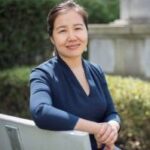 |
Cuilan Liu is Assistant Professor of Religious Studies at the University of Pittsburgh. She graduated from Harvard University with primary PhD training in Buddhist Studies and secondary training in documentary filmmaking. As a scholar, she writes extensively on Buddhism and law. Her research has appeared in peer-reviewed journals including “Buddhism in Court: Clerical Privileges and Jurisdiction of the Buddhist Clergy in Indian Buddhism” in History of Religions, “The Fall of a Chinese Buddhist Monk: Law and State Governance of Buddhism in Post-Imperial China” in the Journal of Law and Religion, “Hybrid Courts and Hybrid Laws: The Legal Governance of Buddhism in Imperial China” in the Journal of Chinese Religions, “Merit-Making or Financial Fraud? Litigating Buddhist Nuns in Early 10th Century Dunhuang” in the Journal of the International Association of Religious Studies, and “Reciting, Chanting, and Singing: The Codification of Music in Buddhist Canon Law” in the Journal of Indian Philosophy. In 2017, she also co-edited the volume titled Rules of Engagement: Medieval Traditions of Buddhist Monastic Regulation. As a filmmaker, her 83-minute documentary film Young Jigme has been screened at the 2014 Jean Rouch International Film Festival in Paris, France. |
25. Yagi (Yaara) Morris
(UW-Madison)
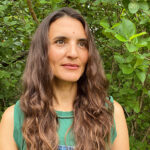 |
Yagi Morris holds a PhD in Religious Studies from SOAS, University of London, specializing in medieval Japanese religiosity. Her dissertation ‘The Kinpusen Himitsuden: Space, Myth and Ritual in a Medieval Cultic Site’ examines the intertwinement of esoteric Buddhist imperial liturgies and the cultic framework of the Ōmine Mountains in a text written for the legitimation of the southern court’s emperor and situated at the crossroads of religious and political realities. In her work, she attends to the innovative and creative potential embedded in moments of crisis and tries to understand how it effects the religious landscape. She is also broadly interested in sacred landscapes and pilgrimage practice and in the relations between religion and the environment. From October 2021, she will be a Japan Foundation research fellow at the International Research Center for Japanese Studies (Nichibunken), Kyoto, where she will continue her work on medieval texts, rituals and landscapes and begin a new project pertaining to contemporaneous pilgrims on the Shikoku henro. |
26. Michael Nylan
(Berkeley)
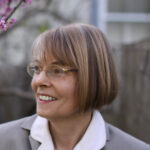 |
Michael Nylan is Sather Professor of History at the University of California, Berkeley. She writes on a wide range of topics, early and modern, in more popular and more scholarly venues. She is deeply interested in human diversity and cultural changes over time. Most recently, she has been slogging through the Documents classic, writing with a co-author on the “Four Fathers of History” (Herodotus and Thucydides, Sima Qian and Ban Gu), and trying to make sense of classical learning during the early empires. |
27. Sahaj Patel
(Vanderbilt)
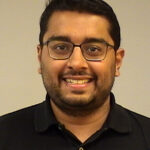 |
Sahaj Patel is a PhD candidate in the Graduate Department of Religion at Vanderbilt University. He received a BA in Religious Studies from Rutgers University in 2010 and a MA in Religion from Columbia University in 2016. His current academic interests include the production and reception of religious biographies in devotional traditions in western India, particularly the Swaminarayan community. His broader interests include early modern and modern Gujarati history, literary theory, translation, and affect theory. |
28. Guanxiong Qi 齊冠雄
(Florida State University)
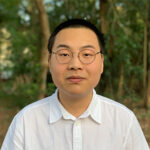 |
Guanxiong Qi is a third-year M.A. student at Florida State University. He studies the Yogācāra history in China and late-imperial Chinese Buddhist culture. He is writing his master thesis on the formation of Buddhist societies and the reformation of Buddhist monasticism in the 17th century Hangzhou. In the future, he plans to focus on food anthropology and conduct historical and ethnographical researches on the Chinese Buddhist dietary culture. |
29. Aleksandra (Sasha) Restifo
(Hebrew University of Jerusalem)
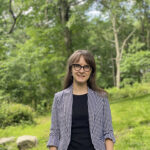 |
Aleksandra (Sasha) Restifo completed her PhD at Yale University and her postdoctoral fellowship at the University of Oxford. Her interests lie at the intersection of literature, aesthetics, and Jain mendicant culture. Her current book project explores how the relationship between cognition and emotions is conceptualized in Jainism in relation to different spheres of life: mental health, aesthetics, devotional ritual, and artistic expression. Her recent publications include a study of an aesthetic theory authored by two Jain monks, “Demystifying Kashmiri Rasa Ideology: Rāmacandra–Guṇacandra’s Theory of Aesthetics in Their Nāṭyadarpaṇa,” and an article on the significance of aesthetic performance in Jain devotionalism, “Aesthetic Pleasure in the Worship of the Jina: Understanding Performance in Jain Devotional Culture.” |
30. James Robson
(Harvard)
 |
James Robson is Professor of East Asian Languages and Civilizations. He is the Director of Undergraduate Studies, East Asian Studies, and has served as Director of Graduate Studies for the Regional Studies East Asia M.A. program. He teaches East Asian religions, in particular Daoism, Chinese Buddhism, and Zen, as well as the sophomore tutorial for concentrators. Robson received his Ph.D. in Buddhist Studies from Stanford University in 2002, after spending many years doing research in China, Taiwan, and Japan. He specializes in the history of medieval Chinese Buddhism and Daoism and is particularly interested in issues of sacred geography, local religious history, talismans, and Chan/Zen Buddhism. He has been engaged in a long-term collaborative research project with the École Française d’Extrême-Orient studying local religious statuary from Hunan province. He is the author of Power of Place: The Religious Landscape of the Southern Sacred Peak [Nanyue 南嶽] in Medieval China (Harvard, 2009), which was awarded the Stanislas Julien Prize for 2010 by the French Academy of Inscriptions and Belles-Lettres and the 2010 Toshihide Numata Book Prize in Buddhism. Robson is also the author of “Signs of Power: Talismanic Writings in Chinese Buddhism” (History of Religions 48:2), “Faith in Museums: On the Confluence of Museums and Religious Sites in Asia” (PMLA, 2010), and “A Tang Dynasty Chan Mummy [roushen] and a Modern Case of Furta Sacra? Investigating the Contested Bones of Shitou Xiqian.” His current research includes a long term project on the history of the confluence of Buddhist monasteries and mental hospitals in Japan. |
31. Gregory Schopen
(UCLA)
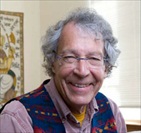 |
Gregory Schopen is an Emeritus Distinguished Professor at UCLA. His work focuses on Indian Buddhist monastic life. By looking beyond canonical materials in favor of less commonly used sources such as Indian Buddhist stone inscriptions, his numerous scholarly works have shifted the field away from Buddhism as portrayed through its own doctrines toward a more realistic picture of the actual lives of Buddhists, lives that were (and remain) deeply intertwined with the economic sphere. In 1985 he received the MacArthur Grant for his work in the field of History of Religion. In 2015 he was also elected to the American Academy of Arts and Sciences. Buddhist Monks and Business Matters is one of three volumes dedicated to his work. |
32. David Shulman
(Hebrew University of Jerusalem)
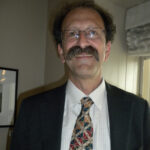 |
David Shulman is Professor Emeritus at the Hebrew University. He specializes in the cultural and intellectual history of Southern India, with particular interest in the early modern period (sixteenth- to nineteenth centuries), and in the poetry and poetics of Telugu, Tamil, and Malayalam, and Sanskrit. Carnatic music is his abiding passion. |
33. Kirill Solonin
(Renmin University of China)
 |
Kirill Solonin earned his doctorate from St. Petersburg University. Since the early 1990s, he was working on the issues of the Tangut language, and Tangut and Sino-Tibetan Buddhism. He worked in several institutions in Russia, Germany, USA and China. He is currently a professor in the School of Chinese Classics at Renmin University of China. |
34. Jackie Stone
(Princeton)
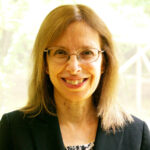 |
Jacqueline Stone is professor emerita in the Department of Religion at Princeton University, where she taught Buddhism and Japanese Religion for almost thirty years. Her chief research field is Japanese Buddhism of the medieval and modern periods. Her current research interests include traditions of the Lotus Sutra, particularly Tendai and Nichiren; the role of Buddhism in premodern Japanese identity formation; and modern reinterpretations of Buddhist thought. Her books include Original Enlightenment and the Transformation of Medieval Japanese Buddhism (2001 American Academy of Religion Award for Excellence in the Study of Religion, Historical Studies category) and Right Thoughts at the Last Moment: Buddhism and Deathbed Practices in Early Medieval Japan (2017 Toshihide Numata Book Award); she has also co-edited several volumes of essays on the Lotus Sūtra and on death and dying in Buddhism. Stone has been president of the Society for the Study of Japanese Religions and co-chair of the Buddhism section of the American Academy of Religion. Currently she is vice president of the editorial board of the Kuroda Institute for the Study of Buddhism and serves on the international advisory board of the Japanese Journal of Religious Studies. |
35. Aleksander Uskokov
(Yale)
 |
Aleksandar Uskokov is a Lector in Sanskrit at Yale University and a PhD graduate from the University of Chicago. His primary research interests include Vedānta and Vaiṣṇavism, both broadly construed, Brahmanical classics such as the Upaniṣads and the Bhāgavata Purāṇa, and the history of Indian Philosophy. His “The Philosophy of the Brahma-sūtra” is forthcoming from Bloomsbury Academic. |
36. Martin J. Verhoeven
(Dharma Realm Buddhist University, Ukiah, CA)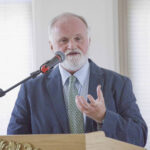 |
Martin J. Verhoeven received his Ph.D. at the University of Wisconsin-Madison, focusing on the American encounter with Asian religions. He was a Visiting Scholar at Stanford under a Ford Fellowship and later, a Buddhist monk for 18 years. He previously taught as Adjunct Professor of History & Phenomenology of Religions at Graduate Theological Union, in Berkeley; and, is currently Professor of Buddhist Classics at Dharma Realm Buddhist University.
|
37. Bangwei Wang
(PekingU)
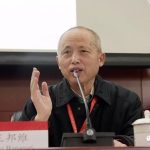 |
Professor Wang Bangwei obtained his Ph.D. from Peking University in 1987. He is currently a professor and director of the Institute of Oriental Studies and Oriental Literature Research Center in Peking University. He is also the director of the India Research Center in Peking University. Since 1984, Professor Wang has published a wide variety of academic works in China and other countries like Germany, France, India, Sweden, Japan and Estonia. He has also published more than 60 research papers and their contents include accounts of the Chinese monks Xuanzang and Yi Jing, as well as the cultural exchange history between China and India. He is also a member of the International Nalanda mentor group that was established in 2007 to rebuild the Nalanda University in India. 王邦維,北京大學教授。先後任教於北京大學東語系、東方學系、外國語學院、東方學研究院以及東方文學研究中心。自1985年起在中國大陸、台灣以及德國、法國、印度、日本、瑞典、愛沙尼亞、荷蘭、尼泊爾出版或發表有多種學術著作和論文,內容涉及佛教語言、文獻、文學、印度和中國佛教史以及中印文化關係。 |
38. Eugene Wang
(Harvard)
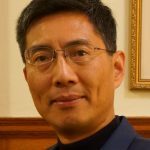 |
Eugene Y. Wang is the Abby Aldrich Rockefeller Professor of Asian Art. A Guggenheim Fellow (2005), he is the art history editor of the Encyclopedia of Buddhism (2004). His extensive publications range from early Chinese to contemporary art. His book, Shaping the Lotus Sutra: Buddhist Visual Culture in Medieval China (2005), which received an academic award from Japan, explores Buddhist ways of worldmaking.
He has served on advisory boards and review committees for the Center for Advanced Study in Visual Art, National Gallery of Art, Washington, DC, Getty Foundation, Mellon Foundation, etc.
His current research focuses on cognitive study of art. He is working on a book on Sonic Painting, probing the unheard soundscape and voice effect in pictures..
He is also the founding director of the Harvard FAS CAMLab (Chinese Art Media Lab). The lab explores multimedia storytelling and designs immersive artistic experience, turning humanistic research into creative sensorial media practice. |
39. WANG Qiyuan 王啟元
(Fudan)
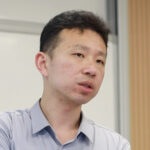 |
Wang Qiyuan obtained his doctoral degree from the Chinese Classics Research Institute at the Fudan University and is currently a research associate professor in the Institute for Preservation and Conservation of Chinese Ancient Books at the Fudan University. He was also a visiting scholar in the Center for the Study of Chan Buddhism and Human Civilization at the Chinese University of Hong Kong. His research focuses on the history of religions during the Ming and the Qing Dynasties. His publications include the co-authored Baoli yunjian 保釐雲間 [Deities, Cult and Sacred Space in the History of Shanghai] and the co-edited Ershi shiji Zhongguo Fojiao de liangci fuxing 二十世紀中國佛教的兩次復興 [Two Buddhist Renaissances in the 20th-century China]. 王啓元,復旦大學古籍所博士,復旦中華古籍保護研究院副研究員,主要研究方向為明清宗教史,曾任香港中文大學禪與人類文明研究中心訪問學者,主要研究成果包括:《保釐雲間》(合著)、共同主編《二十世紀中國佛教的兩次復興》論文集等。 |
40. Albert Welter
(Arizona)
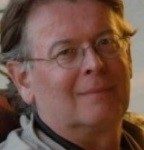 |
Albert Welter’s area of academic study is Chinese Buddhism, and he has published in the area of Japanese Buddhism as well. His main research focuses on the study of Buddhist texts in the transition from the late Tang (9th century) to the Song dynasty (10th-13th centuries). In recent years, he has published Monks, Rulers, and Literati: The Political Ascendancy of Chan Buddhism (Oxford, 2006), The Linji lu and the Creation of Chan Orthodoxy: The Development of Chan’s Records of Sayings Literature (Oxford, 2008), and Yongming Yanshou’s Conception of Chan in the Zongjing lu: A Special Transmission within the Scriptures (Oxford, 2011), in addition to numerous articles. His work also encompasses Buddhist interactions with Neo-Confucianism and literati culture. He just finished a project on the social and institutional history of Buddhism as conceived through a text compiled in the early Song dynasty, Zanning’s Topical History of the Buddhist Clergy, published by Cambria Press in 2018 (The Administration of Buddhism in China; https://www.youtube.com/watch?v=jqJKcl0ygU0). Stemming from this latter research interest, Professor Welter has also developed a broader interest in Chinese administrative policies toward religion, including Chinese notions of secularism and their impact on religious beliefs and practices, leading to a co-edited volume (with Jeffrey Newmark), Religion, Culture, and the Public Sphere in China and Japan (Palgrave-Macmillan, 2017). He recently received funding from the Khyentse Foundation for a project, “The Hangzhou Region and the Creation of East Asian Buddhism,” in conjunction with Zhejiang University, the Hangzhou Academy of Social Sciences, and the Hangzhou Buddhist Academy. He also received funding from the American Council of Learned Societies (with the support of the Chiang Ching-kuo Foundation) for an international conference, “Creating the World of Chan/ Sŏn /Zen: Chinese Chan Buddhism and its Spread throughout East Asia.” Before coming to the University of Arizona, Dr. Welter was based in Canada, where his research projects were regularly supported by the Social Sciences and Humanities Research Council of Canada. |
41. YANG Jianxiao 楊劍霄
(Nanjing Normal U)
 |
Yang Jianxiao 楊劍霄 obtained his Ph.D. degree at the Nanjing University. From 2014 to 2015, he was a visiting researcher at the Research Institute on Buddhist Economy at the Komazawa University. He later completed a post-doctoral program at the Tsinghua University and is currently a lecturer at the Normal University of Nanjing. His research focuses on the Buddhist history during the Sui and the Tang, and Yogācāra. He has published several articles, including “Shensheng xinyang yu jingdian quanli: Lun Fojiao jingdian xinyang de xincheng jiqi gongneng” 神聖信仰與經典權力——論佛教經典信仰的形成及其功能[Sacred Faith and the Power of the Classics: The Formation and Functions of the Cult of Buddhist Classics] and the “Saichō Hokke shūku kanchū no kenkyū” 最澄『法華秀句』卷中の研究 [A Study on the Second Fascicle of Saichō’s Hokke shūku]. 楊劍霄,男,1987年生,江蘇南京人,南京大學哲學博士。2014-15年日本駒澤大學佛教經濟研究所客座研究員。清華大學哲學系博士後。現為南京師範大學講師。主要研究方向為隋唐佛教史、唯識學。先後發表《神聖信仰與經典權力——論佛教經典信仰的形成及其功能》、《最澄<法華秀句>卷中の研究》等論文多篇。 |
42. YANG Qilin 楊奇霖
(ShanghaiU 上海大學)
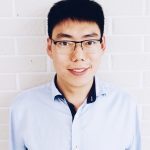 |
Yang Qilin 楊奇霖 is currently a lecturer at the Faculty of Arts at the Shanghai University. He entered the undergraduate program in Chinese Language and Literature at the Fudan University in September, 2009; and completed the thesis Liang-Sui Shishi xinian kaozheng 梁隋釋氏繫年考證 [The Chronology of the Shakya Clan during the Liang and the Sui], under the supervision of Fu Jie 傅傑. In September, 2013, Yang was recommended to the Master’s program, studying under Chen Shangjun 陳尚君. His early interests evolved around Chinese literature and Buddhist history, and was acquainted with the construction of the lineage of the early Chan. He later turned his interests to the Buddhist history during the Qing Dynasty (1644-1912). 上海大學文學院講師。2009年9月考入復旦大學中國語言文學系漢語言專業本科。在傅傑教授指導下完成本科論文《梁隋釋氏繫年考證》。2013年9月經推薦免試攻讀碩士學位,師從陳尚君先生,主要關注中國文獻與佛教史,對禪宗早期譜系書寫與建構有所涉獵,後興趣轉為清代佛教史。 |
43. ZHAO Shanshan (Alice) 趙姗姗
(McMaster)
 |
Shanshan (Alice) Zhao received her M.A. in Religious Studies from McMaster University (2019) and B.A in Asian Studies from The University of British Columbia (2017). She was a news reporter of the Canadian Journal of Buddhist Studies (2016–19). Her research interests include Chinese Buddhist history, Buddhist biographical writing, and Chinese intellectual history. |
44. ZHAO You 趙悠
(PekingU)
 |
Zhao You is currently assistant professor in the Deparment of Philosophy and Religious Studies, Peking University. Her doctoral thesis focuses on the figure of Vimalakīrti from the Indic to the Chinese context. Apart from the transmission of Buddhism in the 2-5thcentury, she also has special interests in early Indian metaphysics and linguistic philosophy. Her recent publications include: “The Wheel Unturned: A Study of the Zhuan falun jing (T109)” (JIABS, 2020); “Time in Early Indian Philosophy: From Patañjali to Bhartṛhari” (Foreign Philosophy); she is also a co-translator of The Impact of Buddhism on Chinese Material Culture by John Kieschnick. 趙悠,北京大學哲學系(宗教學系)助理教授。博士論文聚焦於維摩詰多層次的人物形象從印度語境到漢語語境的變化。除二至五世紀佛教經典的翻譯和傳播以外,她還比較關注早期的印度形上學與語言思想。近期發表包括:《未轉之輪:<轉法輪經>(T109)研究》(JIABS,2020),《早期印度哲學中時間概念的演變——從波檀闍利到伐致訶利》(外國哲學,2018);並合譯有《佛教對中國物質文化的影響》(柯嘉豪著,2015)。 |












































